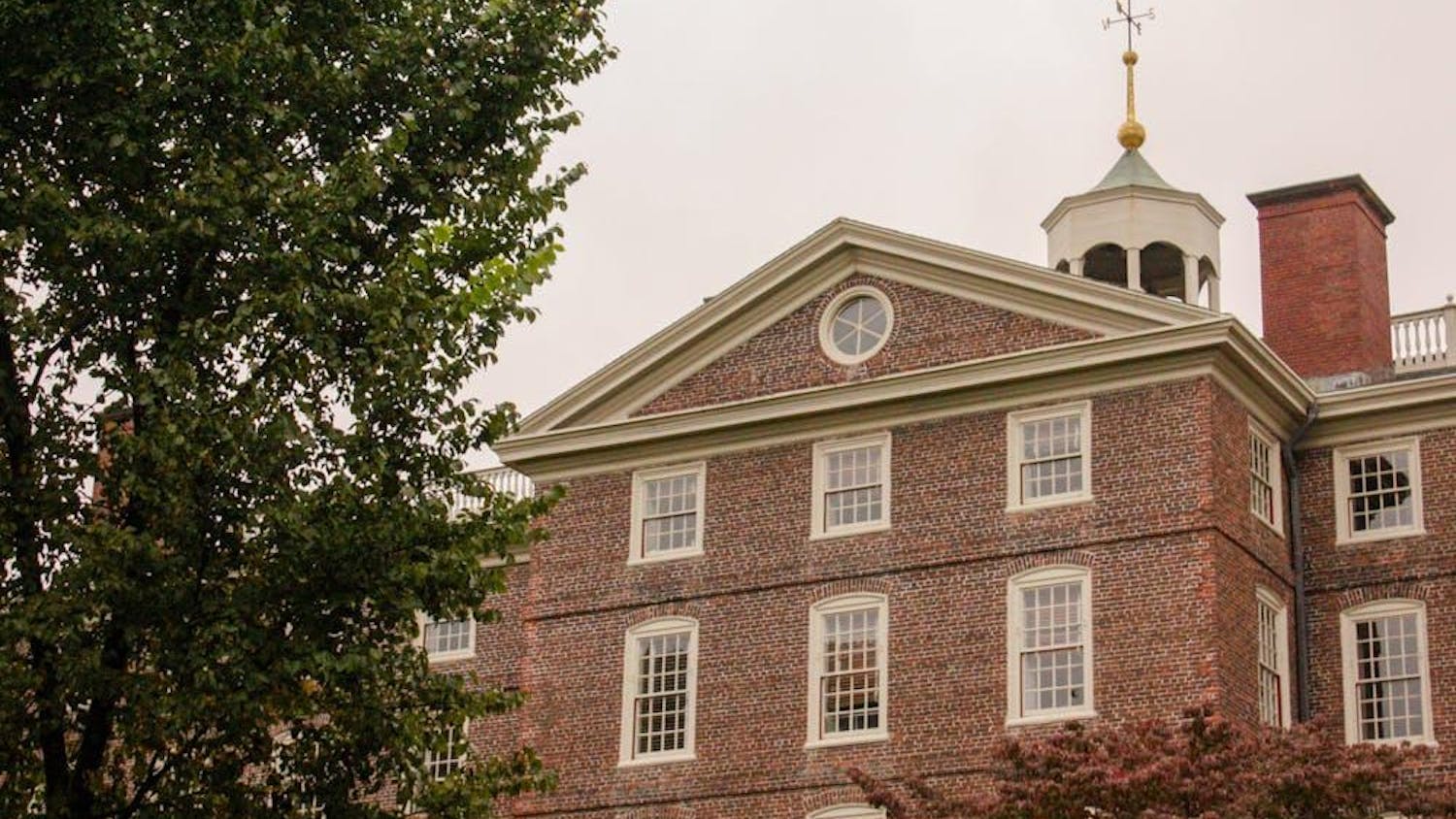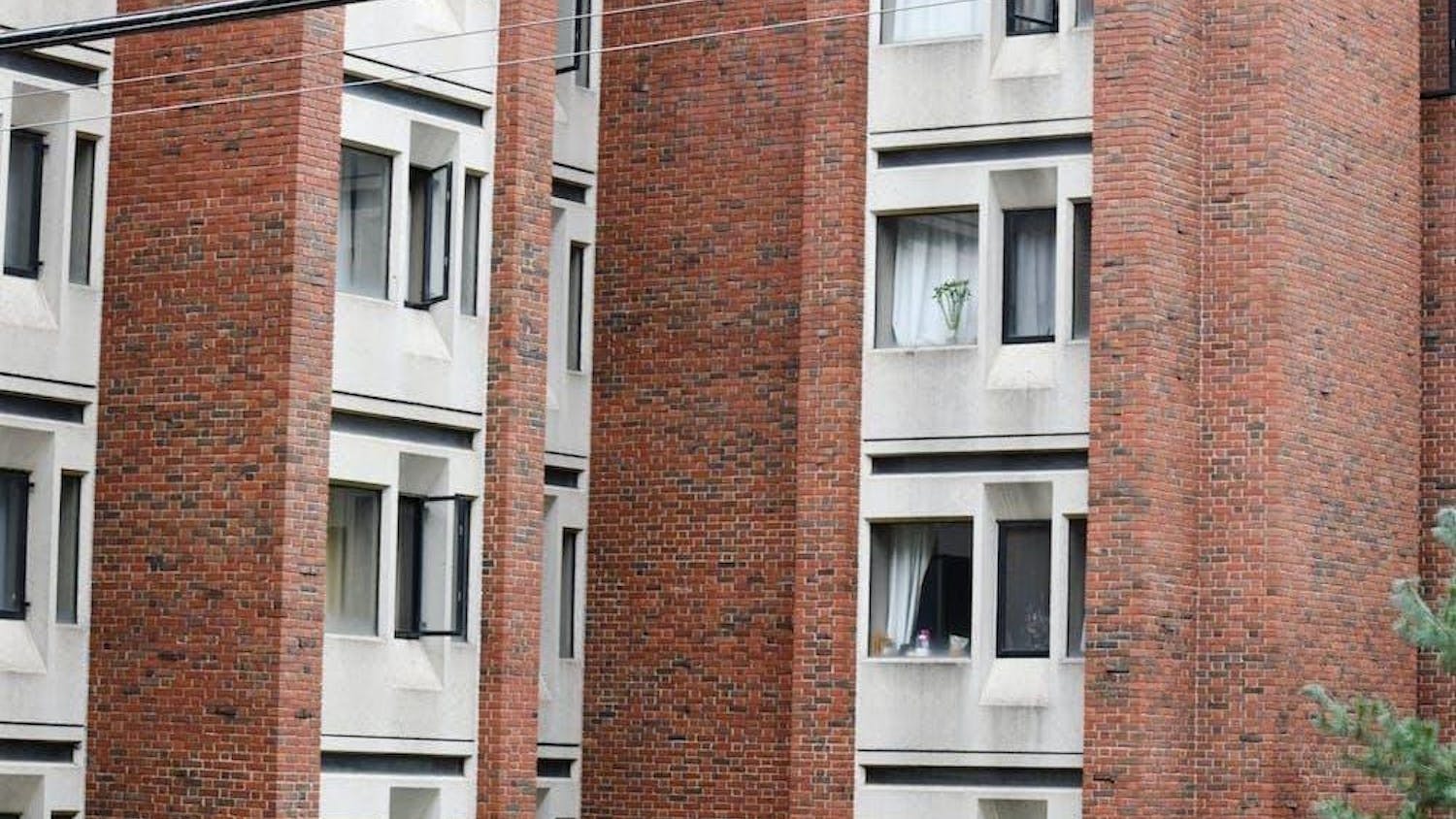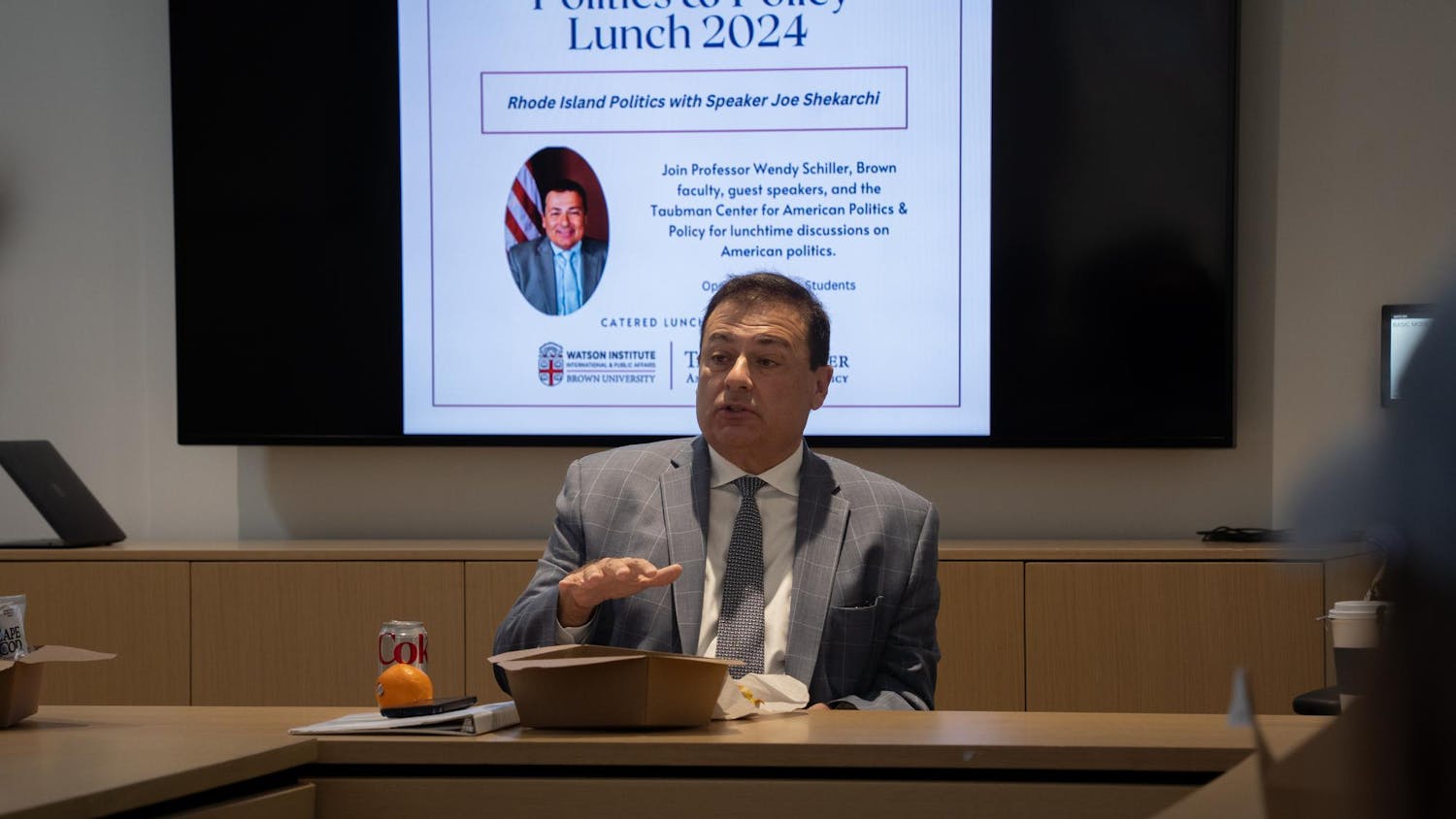Hedy Epstein had never seen so much blood.
"It was like when you turn your faucet on fully," she said to an audience of about 60 last night in Smith-Buonanno Hall.
Epstein, a Holocaust survivor and advocate for Palestine, discussed her experiences during the Holocaust and her visits to Palestine in a one-hour speech followed by a heated question-and-answer session.
The blood Epstein described was the product of a demonstration she participated in during her first visit to Palestine. A group of demonstrators — which Epstein said consisted of "Palestinians, peace-loving Israelis and internationals" — were protesting a fence that blocked Palestinian farmers from reaching the fields. Protestors aimed to "symbolically" open the gate, though no one would actually cross it.
But as Epstein marched, she heard gunshots. In her "American mindset," she said she assumed they were warning shots before she realized demonstrators were being shot. The blood was that of an Israeli boy, among the first to be injured. He had just finished serving his mandatory three years in the army.
Epstein visited the Palestinian West Bank four more times after that trip. She has also attempted to go to Gaza four times, though she has not yet been successful. Her parents were anti-Zionists, and though she said she did not fully understand the term as a child, she decided she was one too. She remembered being the only Jewish child in her neighborhood not to belong to the local Zionist youth group because it was something her parents would not allow.
Epstein came to the United States in 1948, the year that Israel became a state. She recalled having "mixed feelings" about the state's creation, but it stayed in the back of her mind until 1982. The Israeli invasion of Lebanon at that time served as a "wake-up call" for her. As Epstein learned more about the Israel-Palestine conflict, she said she grew "increasingly disturbed" about the Israeli government's policies toward Palestine. In 2003, she made her first trip to Palestine.
Though Epstein acknowledged that violence has come from both sides of the conflict, she said Israel has inflicted more damage.
"I don't like to deal with numbers because each number is a human being," she said. "But the number of Palestinian people who have been hurt far exceeds the number of Israelis."
Epstein ended her speech by calling for "equal rights" for both Israelis and Palestinians, saying she supports democracy for the people of both Israel and Palestine.
After her speech, she opened the floor to a question-and-answer session. One Israeli-American audience member criticized Epstein for telling a "one-sided" story by not also focusing on violence toward Israelis. When Epstein said she had not been to Israel and therefore could not discuss it with as much depth, he asked her to do herself "a favor" by going.
Epstein also spoke about her experiences in Nazi Germany. Her parents often talked about leaving Germany, though she said going to Israel was never an option.
She recalled experiences with her math teacher from school — a member of the SS who came to class every day wearing his uniform. He always kept a revolver with him, which he would finger or even point at her when she answered questions, she said. And no matter how she answered a question — whether she was right or wrong — he always ridiculed her.
In 1938, Epstein was kicked out of school, with her principal saying, "Get out, you dirty Jew." She came home to find her father had been arrested — he was sent to a concentration camp. When he returned four weeks later, she said he was an "old, broken, very sick man."
The next year, Epstein's parents sent her on a children's transport to England. In 1940, her family was deported to Vichy, France and they were sent to Auschwitz two years later. She never heard from them again.
Epstein compared the persecution of Jews in the Holocaust to what Palestinians currently experience, though she said the degree is not as great today.
Epstein has spoken across the country and made 2,000 presentations since 1970, according to her website. Her 2004 presentation at Stanford was met with anger from the university's Hillel organization, which criticized comparisons of the Holocaust to the Israel-Palestine conflict.




